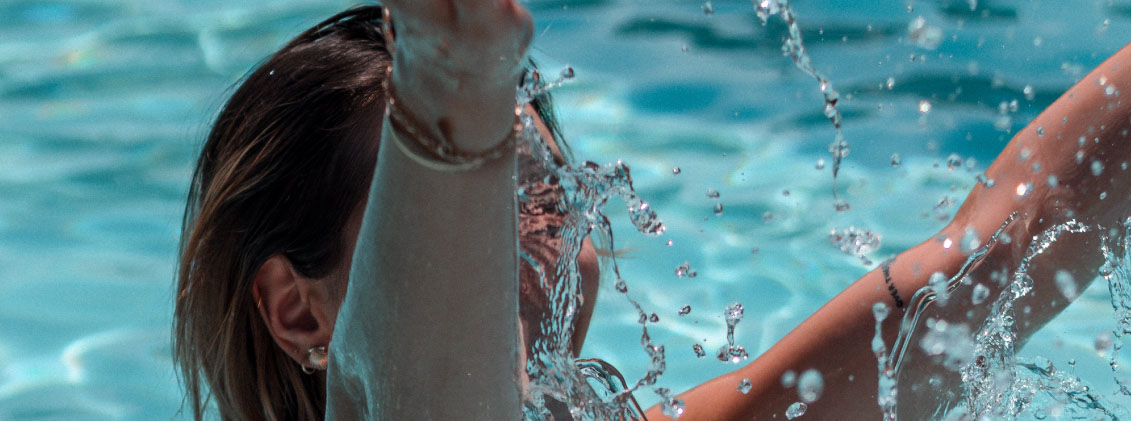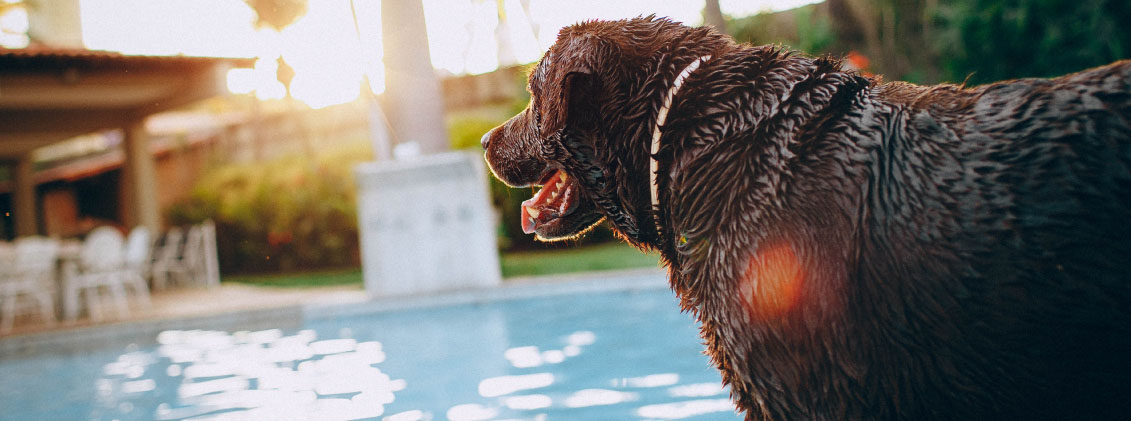The Ultimate Pool Leak Detection Guide
From time to time, you may have to refill your pool, especially if you have an outdoor pool and it gets a lot of sunlight. After all, water does evaporate, right? But if you're having to refill a bit too frequently for your liking, there might be a leak, and if there is one, you have to get it fixed sooner rather than later.

If you think your pool has a leak but you don't know how to go about detecting it, you're at the right place. In this article, we'll give you all the information you need to detect a pool leak and get it fixed as soon as possible. So, without any further delay, let's identify where that leak happened.
1. Look around the pool first
Most pool leaks can’t be identified by looking at the swimming pool. However, if you take a closer look at the areas immediately around the pool, you might spot some signs of a pool leak. For instance, if there’s grass around your pool, a pool leak may cause it to get all wet and swampy. A leak may also have an effect on the masonry around the pool. So, if you see cracked concrete or tiles, it’s a cause for concern.
2. Check your water bills and your spending on pool chemicals
If there’s a leak, you’ll have to regularly fill up the pool with fresh water, and this can result in skyrocketing water bills. So, if your recent water bill was way more than what you’re used to paying, you should inspect your pool for a leak. Constant pumping of fresh water into the pool will also disturb the pool water chemistry, and to achieve the right balance, your pool chemical expenses are bound to shoot up. This is yet another sign of a pool leak.

3. Do a bucket test
Do you want concrete proof of a pool leak? We don’t blame you if you do. After, knowing the worst is better than wondering, right? So, take a 5-gallon bucket and fill it with water from your pool. Next, use some duct or painter’s tape to mark the waterline’s top. Also, use another tape strip to mark the waterline’s top in the pool. Next, let the bucket stay beside the pool for at least a day. If the difference in water levels is significant after a day, you can be sure that it’s a pool leak.
Here are the most popular water features for fibreglass pools!
4. Check the pool filtration system
There might be a leak in your pool’s filtration system as well, which is why you should also keep an eye out for air bubbles. Typically, when bubbles come out of your pool’s return lines, it’s a telltale sign of a filtration system leak. In this scenario, you need to reach out to an expert to get your filtration system checked.

5. Do a dye test
A bucket test is a great way to make sure that there’s a pool leak, but if you want to know where the leak has happened, look no further than the tried and trusted dye test. Here’s how it works:
- Buy a dye test at your local pool store – dye tests are readily available across most pool, garden, and home stores.
- Next, switch off all your pool equipment (filters, pumps, etc.) and wait for the water to become calm.
- After the water is calm, apply some dye to the area where you suspect the leak has happened. At this point, it’s important to remember that the applied dye has to be visible yet small. You don’t want to apply a lot of it as that can make it difficult to identify a leak.
- If there is a leak in a particular area, the dye will be sucked into it. However, if there are no leaks, the dye will simply dissipate on its own. A smaller quantity of dye dissipates faster compared to a larger quantity.
6. Be aware of the pool areas that are prone to leaks
Some pool areas are more prone to leaks than others, and these areas include:
- The pool filter: As mentioned before, your pool’s filtration system may experience a leak. If it does, you’ll have to get it repaired as fast as you can as the filter plays a major role in keeping pool water clean and safe.
- The liner: Pool liners are bound to suffer from leaks sooner or later. High-end pool liners typically last for a decade or more before experiencing leaks, while a low-end liner can experience one after only 7 – 8 years. However, it’s important that you don’t take your pool liner for granted, even if you have a high-end one. Some of the factors that affect a liner’s lifespan include regular maintenance (or the lack of it), the weather, and how the pool is used.
- The pool pump: Another important piece of pool equipment that may have leakage issues is the pool pump, the equipment responsible for circulating and distributing the pool water. If you detect a leak in the pool pump, you can’t waste any time, as ignoring the problem may lead to a serious technical failure. As you might know already, pool pumps are among the most expensive pool equipment, which is why timely repairs are better than replacements.
See the benefits of regularly maintaining your swimming pool!
Conclusion
No matter where the leak is, as soon as you detect it, we recommend you get in touch with a professional pool repair expert. You’ll find many blogs and videos on the internet that claim to teach pool owners how to do DIY repairs, but we recommend against consuming such content. Of course, if you have the technical know-how required to repair pools, go right ahead. But if you don’t, you’d best leave the job to be done by a professional.
It only takes one mistake to get something terribly wrong, and ultimately, it might affect your entire pool. You don’t want to spend a fortune on repairs and/or replacements because of an error, right? That’s why it’s best to call up a professional and get your pool inspected. After your pool is inspected thoroughly, the professional will tell you what needs to be done.

